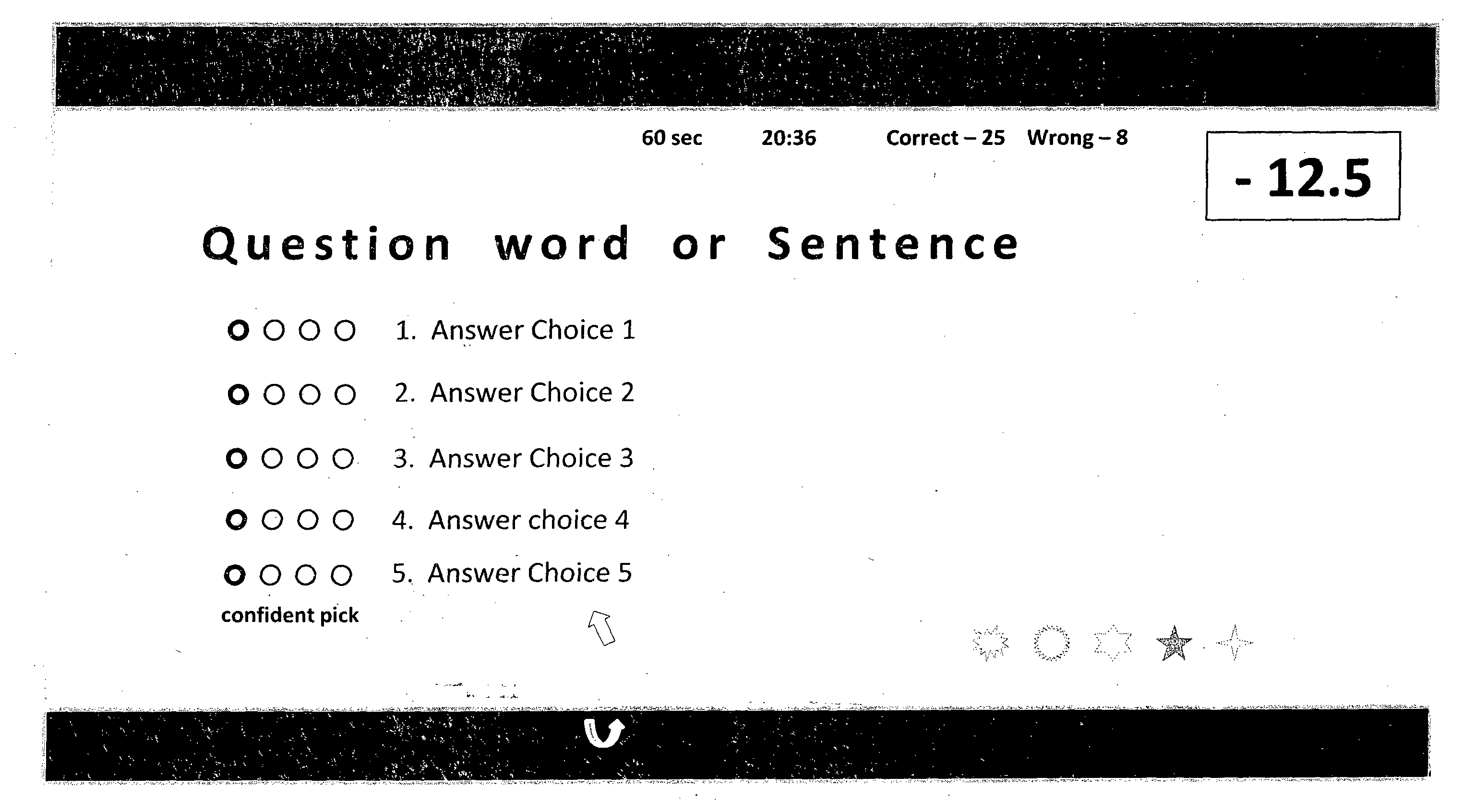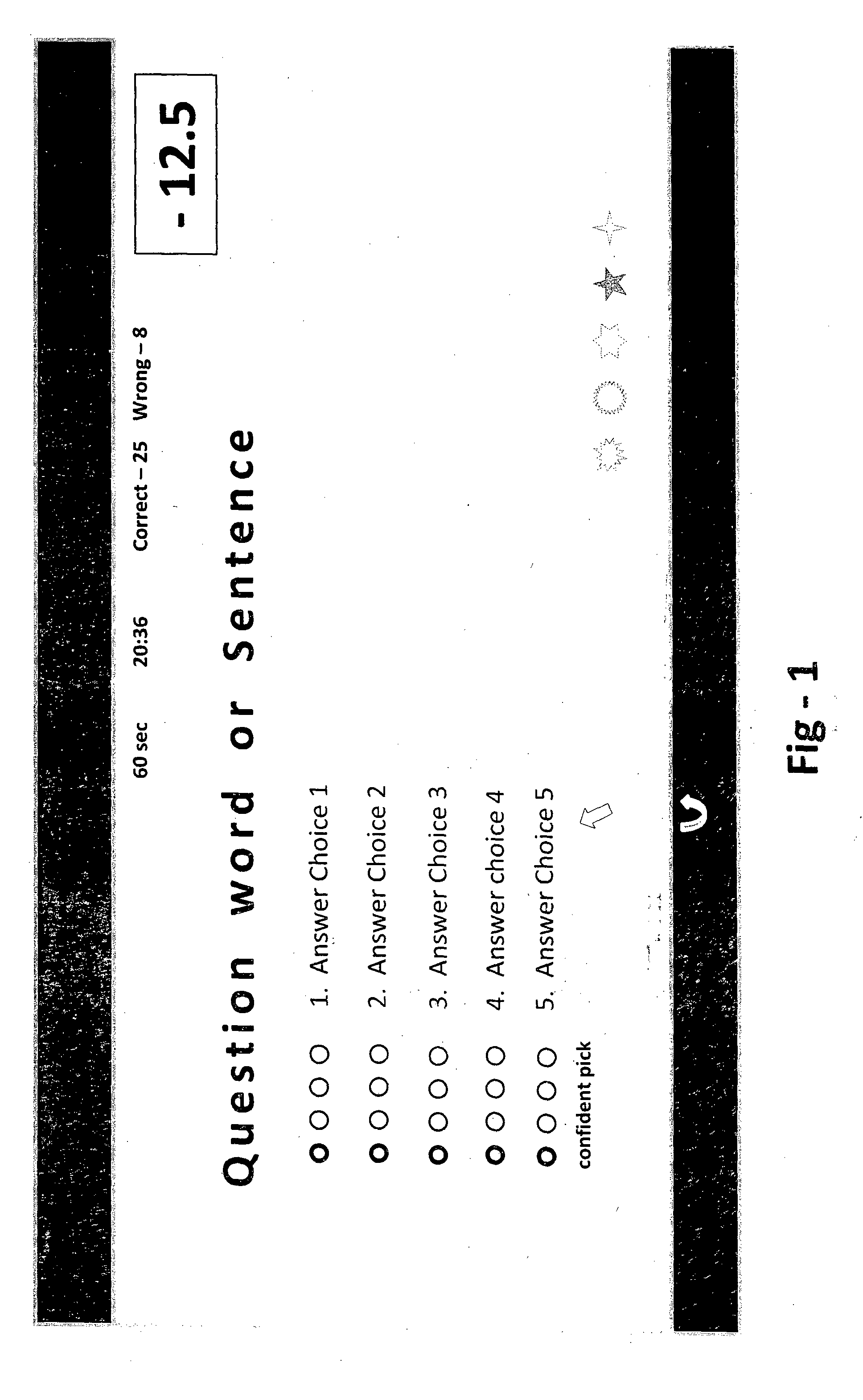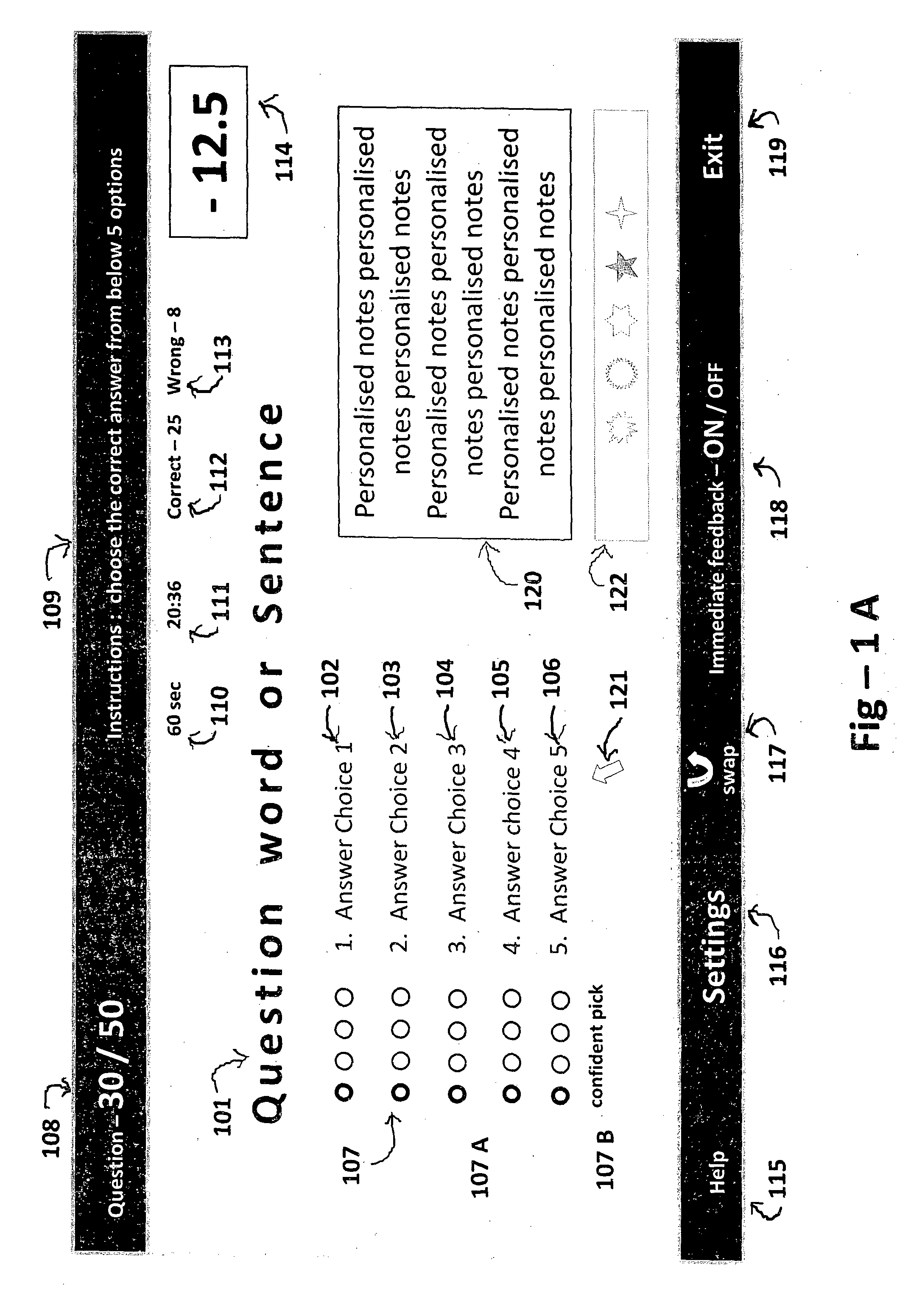The item level response data collected is limited and hence the evidence identification and accumulation process offered by conventional MCQ format is also limited and cannot be effectively used by a student for his further learning.
Because of this the usage of conventional MCQ format is not efficient in giving ‘assessment for learning and top performance in competitive exams’.
The limitations of well known testing platforms that use MCQ format regarding ‘assessment for Efficient Learning and Top Performance’ are as follows: (1) The existing well known e-testing and e-assessment platforms does not tell students the
Subject Areas / Question types that they need to attend immediately in order to stop losing their precious
score.
(2) The existing well known e-testing and e-assessment platforms cannot asses the familiarity of a subject / question type of a student in a
single test.
(3) The existing e-testing and e-assessment platforms are blind to the students' difficulties in answering a particular question.
(5) The existing well known e-testing and e-assessment platforms are
time consuming in analyzing students capabilities, they want the student take ‘x’ number of tests before valid analytics can be produced.
(6) The existing well known e-testing and e-assessment platforms do not measure the Metacognitive aspects of a student that enable them learn new knowledge efficiently.
(8) The existing well known e-testing and e-assessment platforms do not tell students if they are good at answering unexpected question types.
While this information gives some insights however it fails to provide crucial information that helps a student learn efficiently and get top result in an exam as discussed in the limitations of existing e-testing and e-assessment platforms above.
With the inadequate information available from the existing e-testing and e-assessment platforms using conventional MCQ format and self imposed assumptions in trying to learn the reasons of the results of these tests, a students develop false beliefs on their personal traits, performance and subject mastery and carries false confidence.
With this
misinformation they make inappropriate decisions on
learning methods, strategies and eventually on choosing the date of giving the final exam which later on puts a student in a disadvantageous condition.
Because of inaccurate and insufficient learning assessment, students are losing valuable preparation time, are confused and are under tremendous pressure in preparing for high stake exams.
Because they are unable to get a reality check on their metacognition and accuracy on mastery of
subject matter they are not able to use their complete learning potential in preparing for the exams.
Hence they face a variety of problems during the final exam in
spite of extensive preparation.
General problems faced by students during the exam are—(1) inability to recollect the correct meaning of word, though the word looks familiar, (2)
word meaning confusion and the consequent nervousness in a time bound exam setup; (3) inability to
decipher what sentences imply though the meaning of the word is known, (4) inability to retrieve synonyms and antonyms though the word is familiar, (5) inability to recollect the meaning of word, at the right moment.
After answering couple of questions, the correct meaning of the word is realized but by then it's too late, as the
computer based exams do not allow students to access previously answered questions, (6) inability to answer all questions with full effort within the given
time limit because they have spent too much time in deciphering the meaning of some words they encountered in the question, (7) inability to use the correct test taking strategies in solving questions as they didn't have enough time to practice them during preparation period (8) the pressure gradually builds up and makes a student nervous because of which he would not be able to concentrate on other parts of the exam resulting in an overall poor performance.
Many students are unable to revise wordlists because it is not practical since it takes very long time; for example, assume revising wordlist from a regular workbook and sorting the correct and incorrect words for further learning / revising.
So students find it difficult to revise the wordlists before the exam having to give equal attention to all aspects of the exam like preparing and practicing for Quant and Analytical within the time available.
(4) wasted time and effort, losing time & energy in figuring out the best learning strategy that works for them.
Non availability of a proper tool for reality check on their vocabulary preparation many students become succumb to the false belief that they carry the correct meaning of words whatever they have learnt previously.
However in reality they might be carrying a wrong understanding of a word.
These are very dangerous words as when encountered they would confidently pick an answer based on their false understanding, and jeopardizing their scope for getting more marks.
During the
test preparation, they have spent too much time learning vocabulary and were left with little time to practice the test strategies.
So this made them to answer the test ineffectively attributing to
score lesser than their actual capability.
As the time approaches for the final exam the burden of remembering data increases and when they face situations when they are unable to recall the correct
word meaning in
spite of tremendous hard work they have taken up to learn it in the past, feelings get worsened and tension builds up.
With increasing pressure one would lose composure and in
spite of ones hard work done in learning one would succumb to doubt and fear.
A natural consequence of such failed task accomplishment attempt is faced in the final moments of the actual exam resulting in poor
score.
Trying to achieve two or more tasks at the same time is an even more tiring and uninspiring task where the student's only ambition would be to accomplish the task in one attempt successfully with his best capabilities.
But they fail to realise the limitations posed by the available time and often fail in their approach.
On the other hand a student having a performance orientation would try his best to achieve success in the exam with minimum mastery, in most cases they do fail as
alternative methods like educated guessing, gut picks or random luck picks would alone not be sufficient for exam success.
But students are not able to develop required awareness on their personal traits and metacognition with the tools currently available to them for choosing best task accomplishment activities.
 Login to View More
Login to View More  Login to View More
Login to View More 


